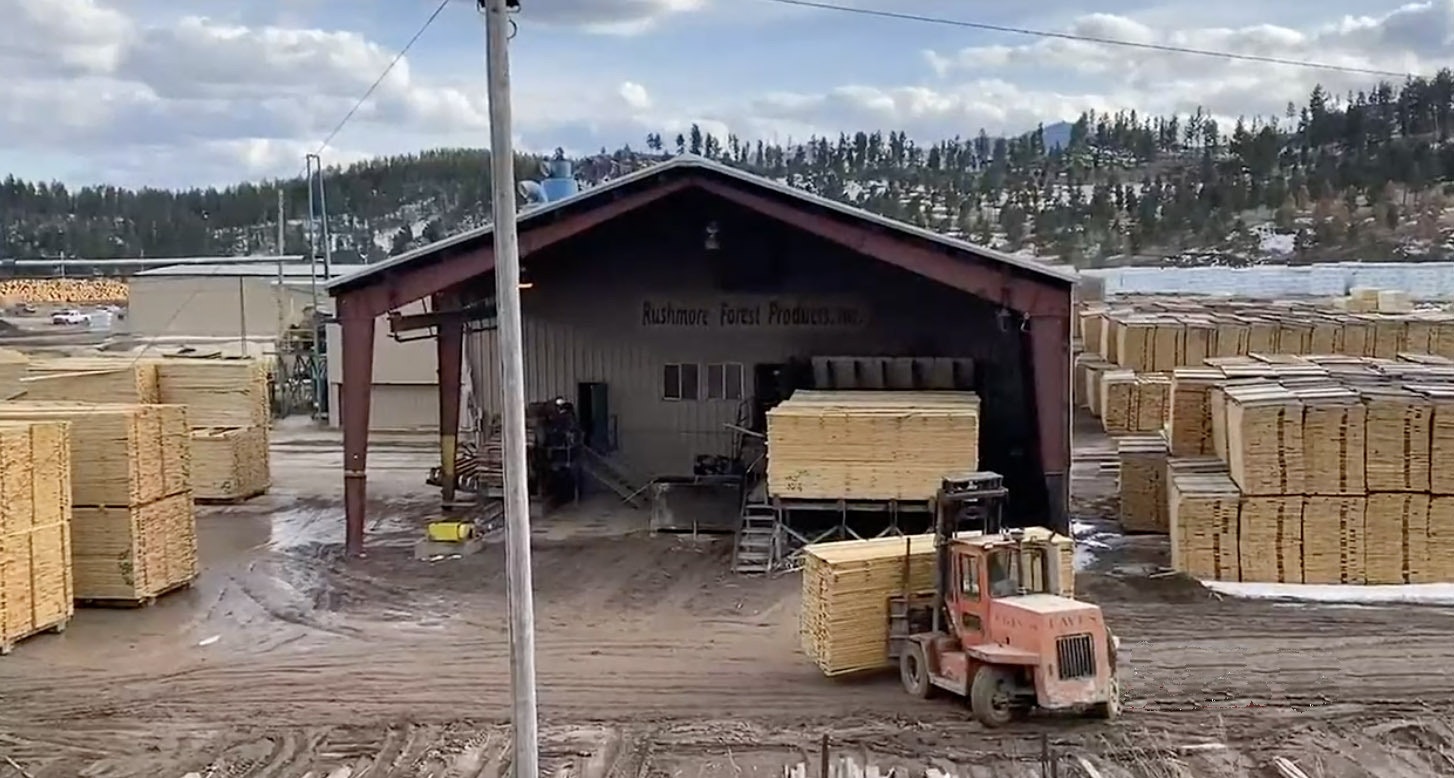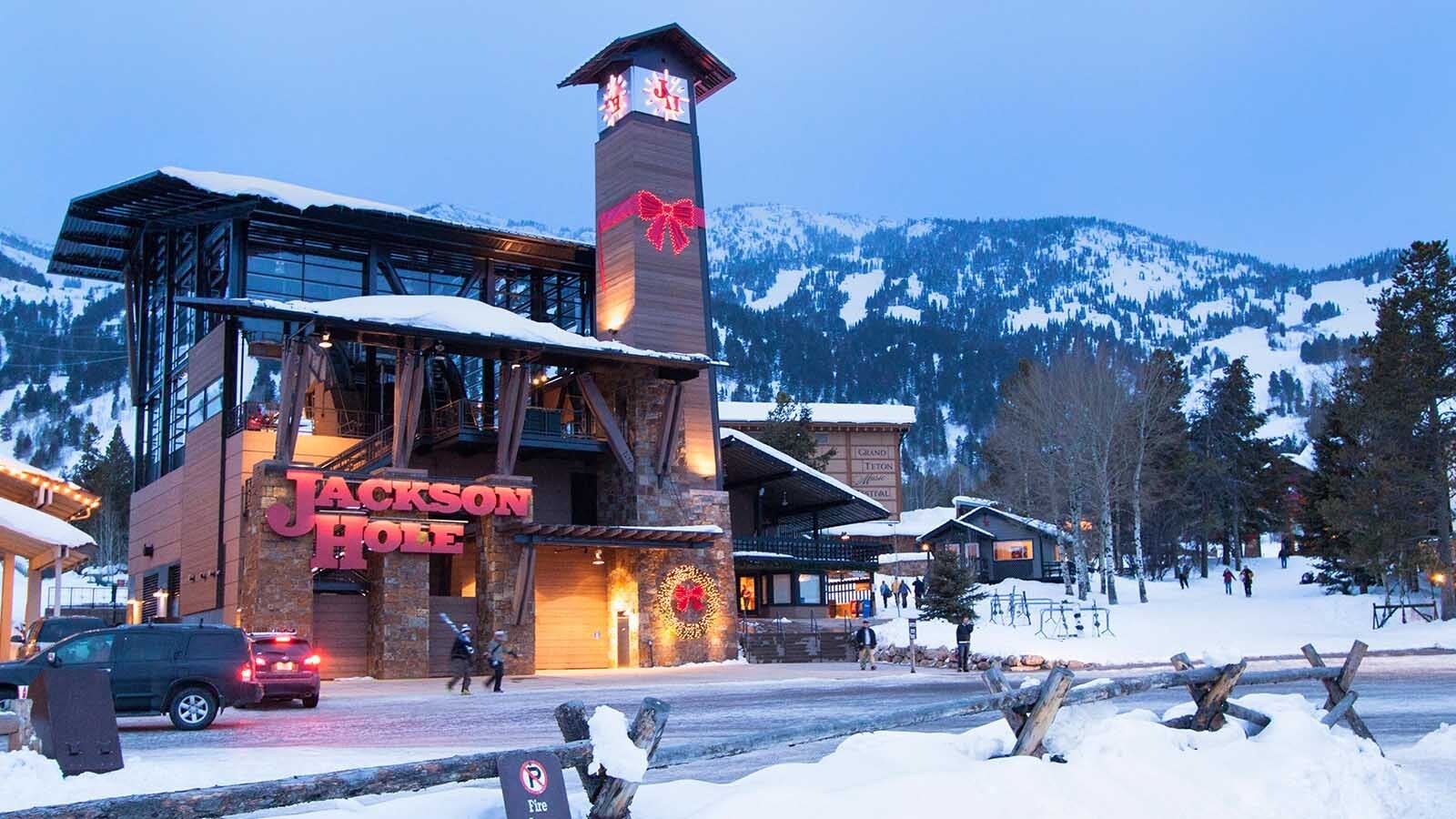A company that operates sawmills in the Black Hills of South Dakota and Wyoming is finding itself unable to take advantage of the increased demand for its product because of shortages in available timber.
The shortage has become so acute that Neiman Enterprises has been forced to close its Hill City, South Dakota, sawmill effective Friday.
“We have enough material to run the (company’s other sawmills) for now,” said Mike Stevens, sales manager for Neiman Enterprises. “But the volume of material that the Forest Service wants to put up for sale is still well below what we normally purchase, and they have been ratcheting down the amount of material that we can buy for years. This by far is the worst year that we’ve ever seen.”
In addition to the lumber mill in Hill City that is closing after 50 years in operation, Neiman runs sawmills in Spearfish, South Dakota, and Hulett, Wyoming.
Stevens says each year the Black Hills operations for Neiman produce around 190 million board-feet of Ponderosa Pine and pressed board.
The lumber the company produces comes from timber put up for sale in national forests by the the U.S. Forest Service — but Stevens said that supply is dwindling.
“We’ve been battling with the Forest Service for years to keep enough supply to keep all of our facilities running,” he said. “They’re just not putting enough timber up for sale to run the facilities that we still have.”
According to a recent Forest Service report, the current amount of standing live timber in the Black Hills National Forest does not support a sustainable timber program for the forest. In addition, scientists are calling for a 50% to 60% reduction in the forest’s timber production.
The outlook for further reductions in available timber does not spell good news for companies like Neiman.
That shortage of raw material has come at a poor time, coinciding with an increase in demand for finished timber lumber created by the pandemic.
“When COVID hit, everybody thought that this was the end of our markets for the foreseeable future,” Stevens said. “Mills started looking at curtailment, production was scaled back, and then you started losing people. We were very fortunate that it didn’t affect us as bad in this area of the country, but because buying stopped for a three- or four-week period, there were huge concerns about what we were going to do.”
“And then, that rebound was so extreme that it went from, you know, having talks about how we were going to take care of employees, how we were going to alternate shifts or or curtail or whatever we were going to have to do to survive, to, holy cow, we can’t keep up,” he added.
The pandemic actually contributed to the demand for construction materials, Stevens said, because when people were forced to be at home, many decided to embark on long-postponed renovation projects, which helped keep the construction supply chain running.
“The country as a whole was locked down, everybody’s working from home or not working at all, but most people have a certain amount of disposable income,” Stevens said. “And all that was now not being spent, right? The restaurants were shut down, the movie theaters were shut down, nobody was allowed to travel. So there were people that had extra cash, and were spending all their time at home.
“So they’re remodeling their house, doing the projects that they’ve thought about for years,” he continued. “They’re creating an office, they’re creating outdoor living spaces because they’re spending more time at home.”
But because of the dwindling supply, Neiman Enterprises is finding itself in the middle of the larger construction product shortage – without lumber, new construction, as well as the manufacture of components such as windows and doors, are impacted.
“We sell to retail markets, which would be your big box stores, your Menards or Home Depot or Lowe’s (and) your smaller retail chains,” Stevens said. “But our biggest customer base is probably distributors, who purchase material and distribute it locally to smaller users. And to the majority of the major window and door companies – Pella, Anderson, Marvin.”
And even though the mill in Hill City is shutting down, the mills in Spearfish and Hulett continue to churn out product, which is being snatched up by distributors from around the country, according to Stevens.
“It’s been an incredible market, something that I’ve never seen, and I’ve been in this chair for 20 years,” he said. “But just because the demand is high, it doesn’t change how much product their business can create.
“We don’t change our production,” Stevens continued. “You know, there’s slight changes that you can make, add a few hours here and there, but for the most part, we’re steady-Eddie in good markets or bad markets.”





